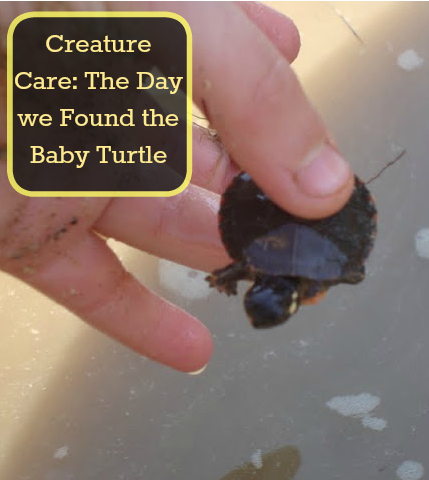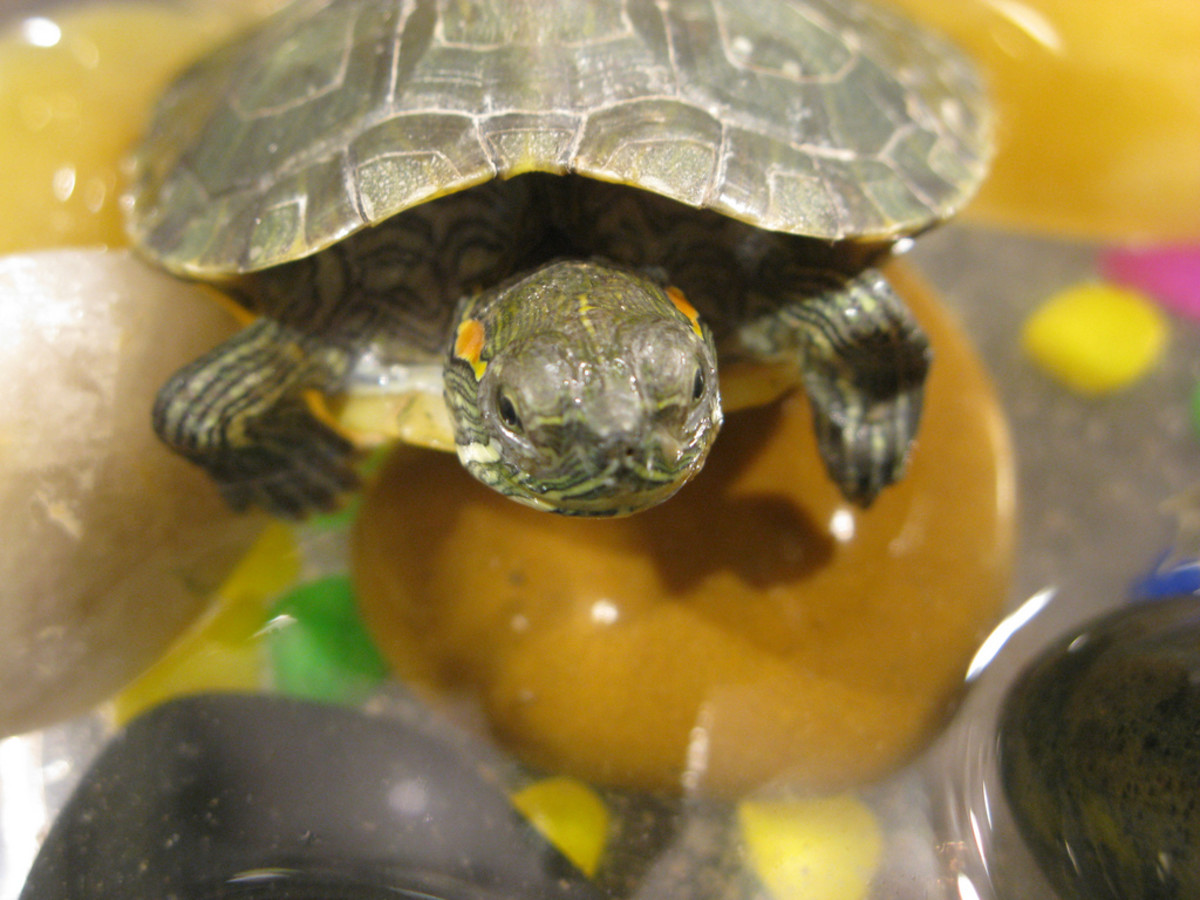To care for a turtle found outside, ensure it’s in a safe area and provide water and shade. If you come across a turtle outside, it’s essential to provide immediate care to ensure its well-being.
Turtles are vulnerable creatures that may need assistance if they are found in an unfamiliar environment. By following some simple steps, you can help the turtle by providing the necessary care and ensuring its safety. We will discuss practical tips on how to care for a turtle found outside, including how to create a suitable habitat, offer food and water, and seek professional help if needed.
Let’s delve into the specifics of caring for a turtle in need and make a positive impact on its life.
Identifying The Turtle
When you find a turtle outside, it’s essential to identify the species to provide proper care.
Recognizing The Species
- Observe the shell shape and color to determine the species.
- Research common turtle species in your area for better identification.
- Consult a wildlife expert or use online resources for accurate species recognition.
Assessing The Turtle’s Health
- Check for any visible injuries or abnormalities on the turtle’s body.
- Observe its behavior, such as lethargy or difficulty moving, which may indicate health issues.
- Ensure the turtle’s eyes are clear and free from discharge for overall health assessment.

Credit: www.reddit.com
Creating A Temporary Habitat
Creating a temporary habitat for a turtle found outside is crucial to ensure its well-being and safety. By setting up a suitable environment, you can provide the necessary conditions for the turtle to thrive while awaiting further care or release back into the wild.
Selecting An Appropriate Container
When creating a temporary habitat for a turtle found outside, it’s essential to choose a suitable container that provides enough space for the turtle to move around comfortably. A plastic storage bin or a large, sturdy cardboard box can serve as a temporary home for the turtle. Ensure that the container has enough room for the turtle to walk, swim, and bask.
Adding Substrate And Water
Select a suitable substrate such as clean soil, sand, or reptile bedding to line the bottom of the container. This will mimic the turtle’s natural habitat and provide a comfortable surface for the turtle to walk on. Additionally, place a shallow dish of clean water in the container to ensure the turtle has access to hydration. The water should be deep enough for the turtle to soak and drink from, but shallow enough to prevent drowning.
Providing Proper Nutrition
To care for a turtle found outside, providing proper nutrition is essential. Offer a balanced diet consisting of leafy greens, vegetables, and occasional fruits. It’s important to research the specific dietary needs of the turtle species and provide a suitable environment for feeding.
Understanding Dietary Needs
Before feeding your found turtle, it is important to understand its dietary needs. Different types of turtles have different dietary requirements, and it is essential to know the specific needs of your turtle for providing proper nutrition. Some common types of turtles include aquatic turtles, box turtles, and tortoises.Offering Suitable Foods
Offering suitable foods is crucial for the proper growth and development of your found turtle. Aquatic turtles require a diet that is rich in protein, whereas box turtles and tortoises need a diet that is high in fiber. Some suitable foods for turtles include commercial turtle pellets, vegetables, fruits, and insects.Feeding Schedule
Turtles should be fed at least once a day, and the quantity of food should be appropriate for their size. Overfeeding can lead to obesity and other health issues, while underfeeding can result in malnourishment. It is also important to remove any uneaten food to prevent bacterial growth in the enclosure.Supplements
In addition to a well-balanced diet, turtles may require additional supplements to meet their nutritional needs. Calcium and vitamin D3 supplements are essential for the proper growth and development of a turtle’s shell. These supplements can be added to the turtle’s food or given as a separate supplement.Conclusion
Providing proper nutrition is crucial for the health and wellbeing of your found turtle. Understanding dietary needs, offering suitable foods, following a feeding schedule, and providing necessary supplements are all essential for ensuring that your turtle receives proper nutrition. With proper care and attention, your found turtle can thrive and live a healthy and happy life.
Credit: www.myslicesoflife.com
Monitoring The Environment
When caring for a turtle found outside, monitoring the environment is crucial to ensure the well-being of the turtle. This involves regulating temperature and humidity as well as ensuring clean water. Let’s dive into the specifics of monitoring the environment to provide the best care for a turtle.
Regulating Temperature And Humidity
Turtles are ectothermic, which means they rely on the environment to regulate their body temperature. It’s essential to provide a suitable temperature range for your turtle, typically between 75-85°F. Use a thermometer to monitor the temperature and consider using a heat lamp or heating pad to maintain the ideal temperature. Additionally, maintaining proper humidity levels, usually around 60-80%, is important for your turtle’s health. You can use a hygrometer to measure humidity and a misting system to regulate it.
Ensuring Clean Water
Access to clean water is vital for the health of your turtle. The water in the enclosure should be dechlorinated and filtered to ensure it is free from harmful substances and contaminants. Regularly clean and replace the water to prevent the buildup of bacteria and algae. Providing a basking area within the water is also important, allowing the turtle to dry off and regulate its body temperature.
Seeking Professional Help
If you have found a turtle outside and it appears to be injured or in distress, seeking professional help is crucial for its well-being. Here are some steps to take in order to ensure the turtle receives the proper care it needs.
Contacting A Wildlife Rehabilitation Center
When you come across a turtle in need of help, the best course of action is to contact a wildlife rehabilitation center. These facilities are equipped to provide medical attention and rehabilitation for injured or sick turtles.
Ensure you provide the rehabilitation center with all the necessary information about the turtle’s condition and location. They will be able to advise you on the next steps to take to ensure the turtle’s safety and well-being.
Consulting A Veterinarian
If you are unable to reach a wildlife rehabilitation center, consulting a veterinarian experienced in treating reptiles is another viable option. A vet can provide immediate medical attention and guidance on how to care for the turtle until further help can be obtained.
Remember to handle the turtle with care and avoid further stressing the animal before seeking professional help.

Credit: www.reddit.com
Understanding Legal Considerations
Discover the legal aspects of caring for a turtle found outdoors. Learn the proper steps to ensure the well-being of the turtle in accordance with wildlife regulations. Understand the importance of seeking professional assistance to provide appropriate care and support for the rescued turtle.
When you find a turtle outside, it’s important to understand the legal considerations before taking any action. Different states and countries have different wildlife regulations and releasing guidelines that you need to be aware of. In this section, we will discuss how to research local wildlife regulations and know the releasing guidelines.Researching Local Wildlife Regulations
Before taking any action, it’s essential to research the local wildlife regulations. These regulations are in place to protect the turtles and their habitats. You can check with the local wildlife agency or conservation department to learn about the regulations in your area. Some states require permits to keep turtles as pets or to release them into the wild. You can also check online for the wildlife regulations in your area.Knowing The Releasing Guidelines
If you find a turtle outside, you might want to release it into the wild. However, it’s important to know the releasing guidelines before doing so. Releasing turtles in the wrong habitat or at the wrong time of the year can harm the turtle and its ecosystem. It’s best to consult with a local wildlife agency or conservation department to learn about the guidelines for releasing turtles in your area. They can also advise you on the best place and time to release the turtle. In summary, understanding the legal considerations is crucial when caring for a turtle found outside. Researching local wildlife regulations and knowing the releasing guidelines can help you make the best decision for the turtle and its habitat. Remember, it’s always best to consult with a local wildlife agency or conservation department before taking any action.Educating Others About Turtle Care
When you find a turtle outside, it’s essential to not only provide care for the individual turtle but also to educate others about the proper ways to care for these creatures. By sharing information with the community and promoting awareness of wildlife conservation, we can ensure that turtles receive the care and respect they deserve.
Sharing Information With The Community
One of the crucial steps in caring for a turtle found outside is to share information with the community. This can be done through various channels such as social media, community forums, or local wildlife organizations. By spreading the word about proper turtle care, we can help others understand the importance of providing a suitable habitat, nutrition, and protection for these remarkable creatures.
Promoting Awareness Of Wildlife Conservation
Another vital aspect of educating others about turtle care is promoting awareness of wildlife conservation. This involves highlighting the significance of preserving the natural habitats of turtles and advocating for measures to protect them from threats such as habitat destruction and illegal wildlife trade. By raising awareness, we can inspire others to take action in safeguarding turtle populations and their ecosystems.
Conclusion And Future Preparedness
Discover ways to care for a turtle found outdoors. Ensure proper habitat, diet, and protection for the turtle’s well-being. Stay informed on turtle care guidelines for a sustainable future.
Reflecting On The Experience
Take a moment to reflect on the rewarding experience of helping a turtle found outside. Appreciate the impact of your actions.
Preparing For Future Turtle Encounters
Stay prepared by keeping a small container and gloves handy. Be ready to assist turtles at any time.
Conclusion
Caring for a turtle found outside is crucial for its well-being. By providing a suitable habitat and proper diet, you can ensure the turtle’s health. Remember to consult a vet for any concerns and handle the turtle with care. Your efforts will make a positive impact on the turtle’s life.





Leave a Reply